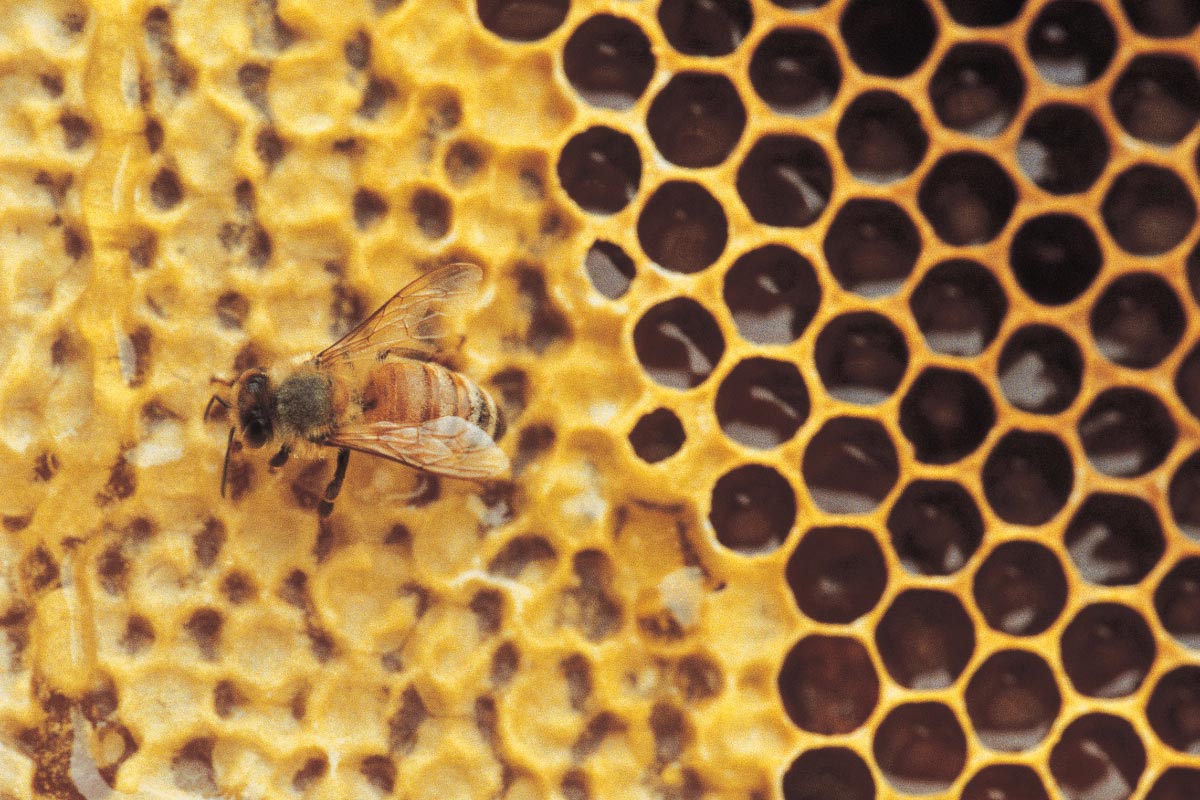Approximately 94% of corn grown in U.S. is coated with bee-killing neonicotinoid pesticides
09/03/2015 / By Greg White

A study published in the Proceedings of the National Academy of Sciences found that neonicotinoid pesticides, a relatively new class of insecticides, negatively affect the immune system of honeybees by helping a viral pathogen propagate.
In an effort to find out how neonicotinoid pesticides harm bees, research scientists injected bees with a pathogen known as the deformed wing virus. Exposing bees to neonicotinoid pesticides similar to the concentrations in fields weakened the immune system of the bees. Usually, the immune system of bees is able to keep the deformed wing virus in check. However, the researchers found that the virus replicated more rapidly in bees exposed to neonicotinoid pesticides than in bees who were not exposed to neonicotinoid pesticides.
Pesticides weaken bees immune system
The authors of the study discovered that neonicotinoid pesticides increased the expression of a protein called leucine-rich repeat protein (LRR), which can weaken the immune system of bees. Bees have an immune system that can keep various pathogens at bay. However, increased levels of LRR makes bees more susceptible to various pathogens and viruses.
Bee populations have been in rapid decline in recent years. Beekeepers in the United States have reported an annual beehive loss of 30 percent or more per year for the last 10 years, which is higher than usual. However, in recent years, some beekeepers have experienced losses of 50 percent of more.
On the importance of bees
Bees play an integral role in agriculture for reasons other than honey. Approximately 87 percent of plants are pollinated by bees. Furthermore, bees perform approximately 80 percent of pollination worldwide. Pollination is the transfer of pollen from the anther (male part) to the stigma (female part), which causes fertilization and, in turn, the production of seeds. Bees are particularly excellent pollinators. If a bee colony collapses, it has a rippling effect on the whole environment. Even Albert Einstein is often attributed with the quote: “If the bee disappeared off the surface of the globe, man would have only four years to live.”
Get CLEAN FOOD and help support our mission to keep you informed: The Health Ranger Store lab verifies everything we sell with accredited testing for heavy metals, microbiology and food safety. Certified organic facility, ISO-accredited on-site laboratory, no GMOs or synthetic ingredients. The world's #1 source of lab-verified clean foods and superfoods for nutritional healing. 600+ products available. Explore now.
In May 2015, the European Commission issued a two-year ban on neonicotinoids thought to be harmful to bee populations. The three pesticides banned included nicotine-based clothianidin, imidacloprid and thiamethoxam. Biotech companies that manufacture the pesticides, including Bayer and Syngenta, sued the European Commision over the ban, arguing that the pesticide poisoning of bees was the farmers’, rather than the products’, fault. The companies have since spent millions of dollars lobbying in an effort to prevent similar bans from occurring the U.S.
U.S. corn infested with bee-killing pesticides
If neonicotinoid pesticides were banned in the U.S., major biotech companies, rather than bee colonies, would collapse. An estimated 94 percent of U.S. corn seeds are treated with either imidacloprid or clothianidin pesticides. Given the vast amounts of pesticides sprayed on U.S. crops, it should be no surprise that bees are dropping like flies in North America.
The fact that neonicotinoid pesticides are responsible for the decline in honeybee populations is hardly news. Multiple independent research studies have attested that noxious pesticides are harmful to bees. For example, according to a study published in Science Journal, researchers found that neonicotinoid pesticides disrupts bees’ ability to learn, navigate and collect food. Furthermore, the scientists found that colonies treated with neonicotinoid pesticides had an 85 percent reduction in the production of new queen bees than controlled colonies.
Bayer and Syngenta are more concerned about making a profit than they are about protecting bees and, in turn, people. As long as harmful pesticides continue to bathe American crops, the bee population will continue to decline — so Bayer and Syngenta better take notice. If the bee population collapses, there won’t be any crops left for them to destroy.
Sources include:
Tagged Under: bees, colony collapse disorder, corn, GMOs, neonicotinoids




















